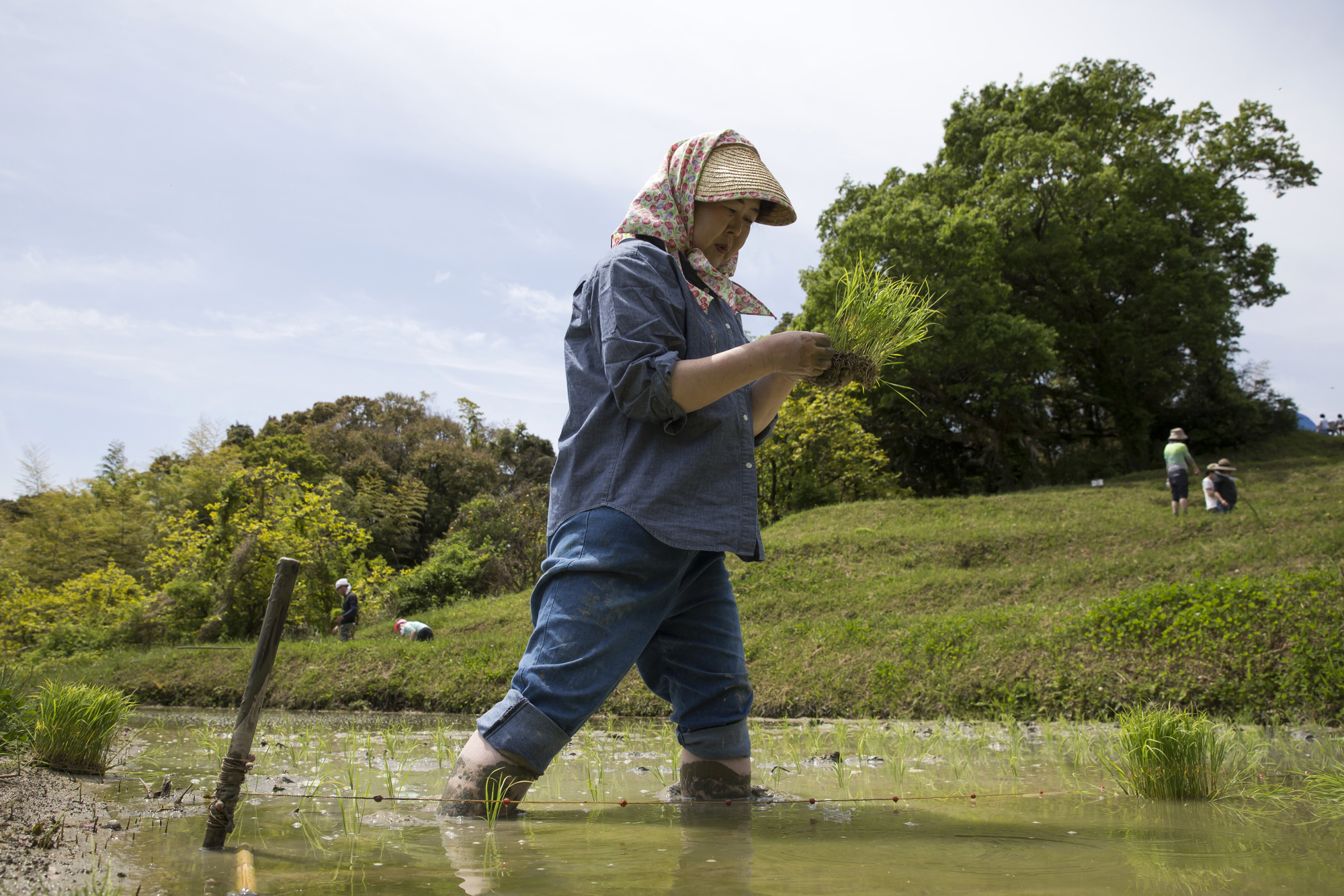Japanese families may, in the not distant future, no longer be able to continue their tradition of munching lots of mikan (tangerines) at family gatherings for a New Year's celebration because production of this popular citrus fruit is declining fast.
In the Usami district of Ito, Shizuoka Prefecture, which used to be a major production center of tangerines, many orchards are being shut down as farmers shift their strategy to reaping small quantities of high-priced varieties like dekopon in a bid to boost their income.
In the 1960s, when Japan had just managed to overcome its postwar food shortage crisis, the agriculture ministry encouraged an expansion of fruit production in anticipation of people's diversifying tastes for food. Domestic tangerine production in the middle period of the 1970s peaked at about 3.7 million tons per year. But import liberalization of grapefruit and other citrus fruits starting in the 1970s forced Japanese farmers to reduce their tangerine production, which has now dwindled to about 780,000 tons a year.

















With your current subscription plan you can comment on stories. However, before writing your first comment, please create a display name in the Profile section of your subscriber account page.